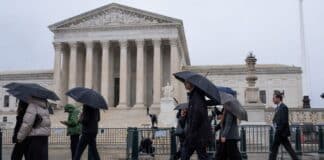A Christian nonprofit organization, Holy Sexuality, has filed a lawsuit against OpenAI, alleging religious discrimination after being denied a nonprofit discount for OpenAI’s services. The suit, filed in the U.S. District Court for the Southern District of California, claims that OpenAI’s policy of excluding religious organizations from its nonprofit program violates California’s Unruh Civil Rights Act, which prohibits businesses from discriminating based on religion.
Holy Sexuality, led by Dr. Christopher Yuan, promotes biblical teachings on marriage and sexuality. According to the lawsuit, the organization applied for a 20% nonprofit discount offered by OpenAI for its ChatGPT services but was informed that religious institutions are ineligible. OpenAI’s policy explicitly states that academic, medical, religious, or governmental institutions do not qualify for nonprofit discounts, though it does not provide a rationale for this exclusion.
The lawsuit also names Goodstack, a software company that partners with OpenAI to verify nonprofit status, alleging that both companies engaged in intentional religious discrimination. Alliance Defending Freedom (ADF), representing Holy Sexuality, argues that denying benefits solely based on religious affiliation is unlawful and reflects a broader trend of anti-Christian sentiment in corporate policies.
Ryan Bangert, ADF’s Senior Vice President of Strategic Initiatives, stated, “The idea that corporations would discriminate against their customers solely because of their customers’ religious faith is really troubling, and in this case, it violates a California state law.”
This legal action follows a similar case where Holy Sexuality challenged software company Asana over a policy denying discounts to religious organizations. After legal proceedings, Asana agreed to offer Holy Sexuality the same 50% discount it provides to other nonprofits.
The current lawsuit seeks a court declaration that OpenAI and Goodstack’s policies violate the Unruh Civil Rights Act and requests an injunction to prevent enforcement of the discriminatory policy against religious organizations.



